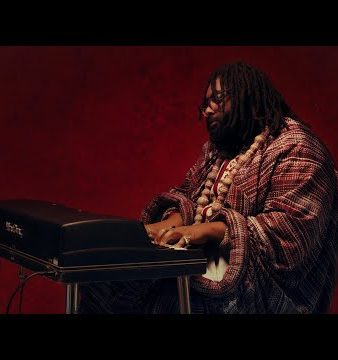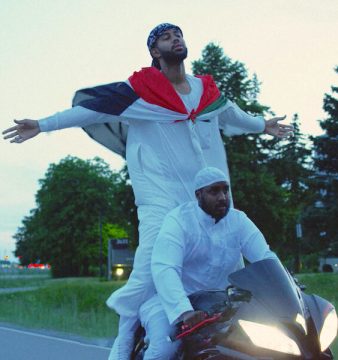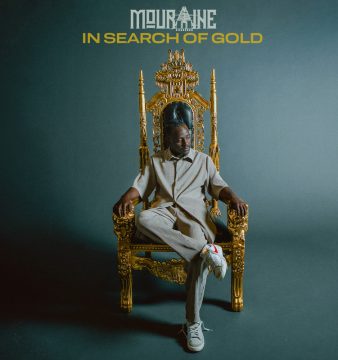National Pride in Arka Saber’s Poetry
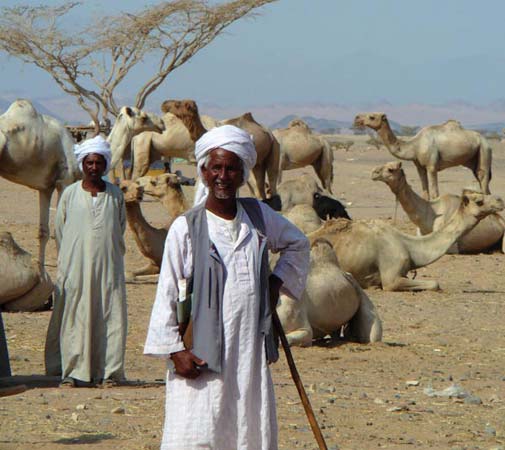
Arka Saber connects today’s reality to the history of ancestors in maintaining their homeland and societies by illuminating the parents’ attitudes to remind the Beja revolutionaries about the bright history. It was also proven that parents united in their historical wars against the greatest empires in the 19th century. According to recordings of Beja poets, the stories of well-known Beja heroes, who fought Turkish rulers, were reported in and around Sawakin.
As long as history repeats itself and the Beja revolutionaries still wanted to contribute to rebuilding their homeland, Arka proudly hinted that in his poetry to keep reminding the Sudanese youth and particularly the Beja fighters to defend their land against the plans of those who were here for our wealth. Therefore, Arka’s contribution with a number of poems in a language full of pride by the adults’ role, which was proven in history, and in order to push this generation to go forward on their steps and continue their revolution and leave a similar legacy. These poems were considered of great importance to be analysed and illustrated the genius of the poet in conveying significant and clear messages.
The poem, “Amreekyay Frnsay“, which means America and France, introduces the empires that were known in Africa and how the parents were able to attack and harm them in several battles in Eastern Sudan. He added that the emperors’ historians and poets mentioned the glory of Beja fighters in their literature. This was an allusion to the English poet, “Rudyard Kipling”, who documented the battles and scourge of the Beja fighter in his poem, “Fuzzy Wuzzy”. Click here for the “Kipling” poem.
“Amreekyay Frnsay“
| Bejawiet lines | Arabic Translation | English translation | Transcription |
| أمريكايفرنساي داماي,أفريقياي دهاي,وانقليزتاريخونهديديني | في امريكا وفرنساوكذلك في افريقيا,حكى الانجليزتاريخنا (البجا). | In America and France as well as in Africa,The English reported our history (Beja). | /ǝm-ri:k-jaij fǝ-rʌn-sai dᴂ-mǝ/,/ǝf-ri:q-jai dehai/,/win-qi-li:z i-tᴂ-ri:-kɔn hǝ-di:-di:-ni/ |
| كَكِلْسيىاتنظيمون ,توربا تولهوسنكتميتيو,برس كنكيتاوسْمونقأقأميني. | بترتيب من تنظيمجيشنا,ولما نقترب منكسلا,صوتنا سيُسمعلاننا لسنا نبْتمتطفل. | After arranging and reorganizing our army, (and)when we approach Kassala,we will be efficiently heard because we are not sprouting an intruder. | /kǝ-kil-sei itǝn-zi:-mɔn/./tɔr-bǝ tɔ:l-hu:s ni-kǝt-mei-tai/,/bi-rǝs kin-kait u:s-mu:n qwǝ-qwᴂ-mi:-ni/. |
| رطليبشكليتيت,اوجيش يهمْناوِحِدابنكتميتي,اقْريمْيونامكِروهِماقيْني | بتشكيل جيشناارتال,ولما نوصل منطقةوحده,سوف يصعبالقرار لعدونا. | By reforming our army,and reaching the region “Wehida”,our enemy’s decision will be difficult. | /rǝt-li:b ʃǝk-kǝ-lei-ti:t/,/ɔ:-ḑei-ʃ jeh-nǝ “Wihidᴂb” ni-kʌt-mei-tai/,/i-qǝ-ri:m-jɔ:n u:m-kir qel-lǝ-bi:-ni/ |
| نأتي باتيرتقصاتون,مر بشيرننْفْنيْنيْتي,اوجيش تمييعدمي قماميني | بدل ان ندفنقضيتنا,سنواجه عمرالبشير,وجيشنا سيقولكلمته حينها. | Instead of burying our case, we will face Omar Al-Bashir, and then our voice will be heard. | /n?ǝ-ti bᴂ-ti:r tu-qis-sᴂ-tɔn/,/”Mir-bǝ-ʃi:r”nin-fǝ-ni:-nei-tai/,/ ɔ:-ʤeiʃ tǝm-mi je?d-mǝ qi-mᴂ-mein/ |
Arka began the poem by linking the past to the present by mentioning America as the largest world’s power today along with France – with power in many African countries – and what the English people have reported for them about the ferocity of Beja fighters. The goal of the poet was to link the Beja name to the greatest empires that they knew, in order to prepare the listeners for what will be said, as he reflects the same importance of these empires for their life.
The second and third lines in Arka’s song explained the way they organised the Beja Army in the form of units in order to attack the city from several sides as the Beja cavalry did in tactics of breaking the English square in Sawakin. The poet followed that by reminding the revolutionaries that, when at that time we approach Kassala, it will be difficult for them to defend it because we are not a parasitic plant, but rather a striking force that cannot be underestimated.
Arka concludes the poem by showing the strength of Beja men and their equipment which could be used to attack the city from several directions while the Beja army was ignored by the established government. Considering all the pride, he added the justification to the public presenting their case and fighting for it by facing former Sudanese President Omar Al Bashir, and at that time, the Beja revolutionaries would demonstrate what could occur in reality. Arka was proud of the military strength and combat experience of individuals as well as the determination of the goals that they dreamt to achieve.
The second poem, “I-sanayan“, which means “our brothers”, shows how the poet was proud of the youth upon their success in return for what was accomplished during their revolution. In addition, he reflected the heroics and stances they went through to touch their peace achievement despite the negatives commitment of its clauses, which lights were shed on in an earlier article.
“I-sanayan“
| Bejawiet lines | Arabic Translation | English translation | Transcription |
| توكلولاشرقيدهايانديرِ فاليدهاياونتا اياناسنايان | لمعلومية الجميع ولمنفي الشرق ,جاء (خوتنا البجا الذين) نذروكم بالفأل جاؤوا اخوة صادقين | To be informed, those who live in the East of Sudan or elsewhere,our Beja brothers (who) have promised with an omen, have now become real brothers. | /tɔk-lu:l iʃǝr-qi: dehai/,/i-nǝ-di:ri fᴂ-lei- heia//ɔ:n-tǝ ei-jǝn i-sǝ-nᴂ-jᴂn/ |
| انبرسنويتاينهوب تقربسناكبوياب,سدك اياناسناين | وفي فقد همبصيص منا لامل, أتبعو هم بالهزائم ,والان عادو اخواننا | When they lost hope, (they) defended,and now they are considered as true brothers, | /in-birʌs nǝ-weit i:n-jeh ɔ:b/,/ti-qi-rǝb si-nᴂk-bɔ:-jᴂb/,/si-dik ei-jǝn i-sǝ-nᴂ-jᴂn/ |
| لبسوييامويايياشعبيتقضيياتيباونتا اياناسنايان | سهرو الليال يوتحملو حرارة الشمس, من اجل قضية شعبهم ,والان عادوا خواننا | They waited late nights and beard the heat of the sun,for the Beja case, and now they returned brothers, | /lʌ-bǝ-sɔ:-jei ǝ-mɔij-jᴂ-jei//i-ʃǝ-bi:t qǝ-di-jai-ti:b/,/ɔ:n-tǝ ei-jǝn i-sǝ-nᴂ-jᴂn/ |
| توبورفتاكيسيناومألايشيعنيتياونتا اياناسنايان | كانو يهزو نار كان المعمورة ,طلباً العلا ,والان عادو اخواننا | Global corners are shaken when the Beja altitude was demanded, and now they returned brothers, | /tɔ:bu: fi-tᴂ-ki:-sein/,/u-m?ǝ-laij ʃi:-nei-tai/,/ɔ:n-tǝ ei-jǝn i-sǝ-nᴂ-jᴂn/ |
| اترموماتأرواتيباوفناي سللباقامسدك اياناسنايان | وفي وقتالو اجب التزمو باحتراما لاتفاقيات ,مع معرفته مطريق الحرب ,جاؤوا اخوة صادقين | They respected the agreements, despite of the awareness of war ways, but they came true brothers | /i-tr-mu:-mǝ t?ǝr-wᴂ-ti:b/,/ɔ:fi-nia s-lǝl bᴂ-qᴂm/,/si-dik ei-jǝn i-sǝ-nᴂ-jᴂn/ |
| ارووا بجاياوسمرهساتاكي باكاياونتا اياناسنايان | ولما جاؤوا بنصيب البجا,لم يكن بثمن بخيس ,بل الان عادوا خواننا | The Beja share that is brought, can’t be ignore, therefore, they returned | /ǝrw-wǝ biʤai ɔ:-sǝm/,/reh-sᴂt ǝ-kǝj bᴂ-kai/ /ɔ:n-tǝ ei-jǝn i-sǝ-nᴂ-jᴂn/ |
Arka wanted to announce the glory of the Beja revolutionaries when they returned with multiple successes in numerous fields so that he could report these achievements. In the first two lines, he used more than one phrase that indicating brotherhood and a close relationship among them. That was clearly seen on their faces due to the difficulties they suffered from at first when they revolted and the subsequent development of the army until they culminated in the deserved peace.
The poet boasts the difficulties that faced the foundation base of the Beja Congress army in areas where there were not the minimum requirements of life, such as shade and fresh drinking water as well as the shortage of food beside snakes and predators in a harsh mountainous environment. Arka also praises the patience of the Beja youth those who crossed the deserts and climbed the mountain in the hot weather. Furthermore, he was amazed by those who stayed nights up without lights, traveling on foot carrying their luggage and weapons on animals back to move from one place to another. Therefore, he always appreciates the autumn season as a savior in his poetry, in which they enlarge their activities due to the existence of fresh drinking water for people and pasture for animals.
Arka states that these natural situations were never an obstacle to the Beja youth in achieving their objectives because they terrified the cities that they attacked, despite the inadequacy of supporting logistics and lack of basic fighting tools. They were also highly injected psychologically with the spirit and the convictions of the justice of their case. Equally, they returned with a positive attitude of peace, gratefulness for what they had already accomplished, and they respected the agreements; although, they were aware of the way to war. They returned with their heads raised as a sign of pride in what they achieved realising the ambition of rebuilding their country and integrate into their communities.
The final model in Arka’s poetry entitled “Bejabtoit“, which means “We are the Beja”, in which he highlights the challenge of the Beja youth to the power of the state which ignored them and listing reasons that made them proud about their skills.
“Bejabtoit“
| Bejawiet lines | Arabic Translation | English translation | Transcription |
| اميبيي دهايدولةكوّجهمنابجابتوياكيفونشقاسمني | كوننا بفخر ولانتوسل اي احدلاننا ابناء البجا ونفعل ما نشاء | We are proud of being Beja descendant, and we won’t beg anyone, but we will do whatever we want. | /i-mi:b-jehe dehai daʊ-lᴂt kʌ-sǝm-mʌm-nǝ/,/bi-ʤᴂb-tu:jt i-kei-fɔn ʃǝ-qᴂ-sǝm-nai/ |
| يهداييتاماقي دهايممورمنياكوربيتامنقايسلفسمني | ترانا مثلا لزعماء نستعد للمعارك ومثل الفيل دائما نتفاعل مع العزلة | We are leaders prepared for battles,and as elephants inCommunicating with solitude. | /jeh-dᴂ-jeit imᴂ-qi: dehai mǝ-mɔ-rǝm-nai/,/u-kur-bi:t i-min-qai si-lɔ:f-sǝm-nai/ |
| ركيتيتتُمقنايكسمعمناشركتيتتدابيتيكقوقمنا | لا نهاب ولا نتوسل بسبب الصعوبات ,ولا نطمع لكي نحصل علىالفتات منا لطعام. | We never fear nor beg because of difficulties we faced,and we won’t be fed on crumbs. | /ri-kwi:-ti:t timinqia kǝs-sǝm-mǝm-nǝ/,/ʃri-k-ti:t ti-dǝ-bi kǝ-qu:-qǝm-nǝ/. |
| هنيبيتبجاوييبكأنكرناأكيبكا وأشوكأقبلنا | لا نتنكر أيبجاوي لانه مننّا ولا نقبل عدوّنا بيننا. | We can’t deny our brothers, and we won’t accept enemies among us. | /hi-nei-bi:t bi-ʤᴂweb k-ǝn-kur-nǝ//i-keib-kǝ w?ǝ-ʃɔ-jɔ k-?ǝq-bil-nǝ/ |
Arka was proud of the Beja revolutionaries’ achievements that were directly reflected on its members and to the community as a whole. Therefore, he reported how their return to the homeland was not of oppression or enforcement, but because of the convictions and pride that was resulted from being involved in many peace tasks. In every line of the poem, he implies a picture that reflects the rejection of peace if it does not rise to their ambition. Moreover, every line also ends with a phrase representing that they were proud of being part of the Sudanese revolution without begging anybody because they could do whatever they wanted.
As an initial feature of the poem, the poet proudly narrates two different images. One of them was when confronting the enemies in the battlefields and the other was in the state of peace. In both cases, the revolutionaries appear with strong power of victory and will. He detailed the first scenario when they were preparing for battles as if they were all leaders. It is natural that the commander always leads the battles in order to direct the army units and the moments when they supposed to attack. This characteristic was observed by all individuals as if they were competing to advance the front rows in a manner that indicates nothing, but strong lack of fear and readiness for confrontation.
The second feature is in the state of peace, which was in calm and harsh nature. The poet says that in a state of no war, individuals flirt with predators, such as elephants, which enjoy being away from other animals. In this poem, the situation of these young fighters was among these giant wild animals that naturally live without fear and they were ready in a state of destroying those who confront them in any way.
The final line describes a wonderful picture with noticeable meanings. In addition, the entire line carries implicit meanings. In this sense, Arka said that we did not fear or beg for charity so that they could be taming us or discouraging us from our revolution. This was an indication that the one who was negotiating tried to dissuade some of them with personal temptations, but that did not stimulate any of those who prioritised their country’s betterment rather than getting personal gains themselves. Therefore, the expression was a category of a refusal to respond to these kinds of ill temptations.
This article dealt with one of the most famous topics Arabic poetry and literature, which has been constantly evolving from the praise of the characters reaching to mention the important events in a language that is not devoid of self-esteem or the homeland as well as of nationalism. Displaying masculine characteristics and attitudes, in which the revolutionaries lived was a feature of Arka’s poetry at the beginning of each poem, but the poet specified some poems indicating the necessity of reflecting how they suffered to achieve their goals.
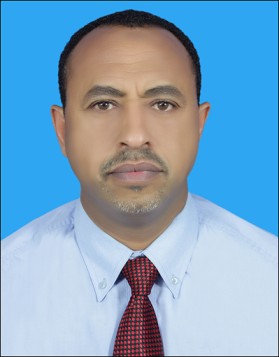
Dr Hassan Adrob is a Sudanese based in Oman and works as an English language and Linguistic lecturer and a teacher trainer at Red Sea University and Sohar University. His MA and PhD are in Applied Linguistics. Dr Hassan is a qualified CELTA instructor and has participated in an accredited IELTS Training Programme. He fulfilled the twin duties of lecturer in English and skills leader. Dr Hassan is a regular participant at conferences and has recently published three books with Eliva Press.

